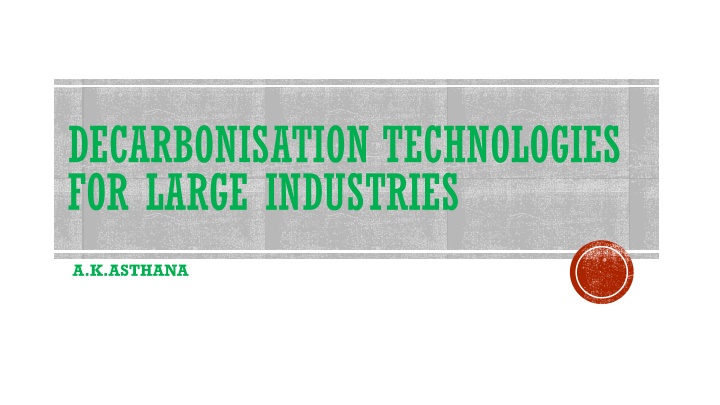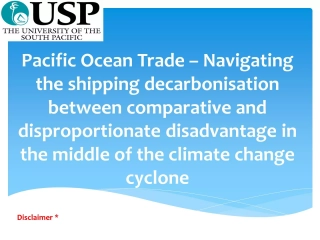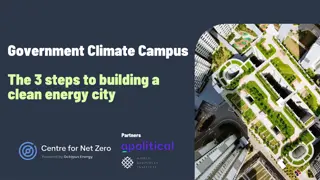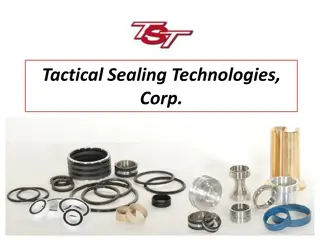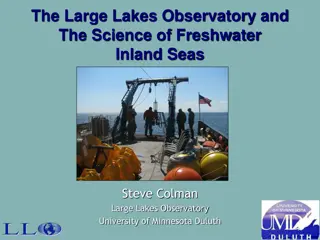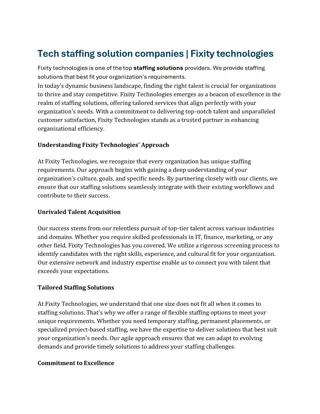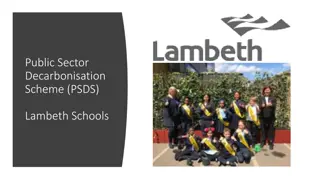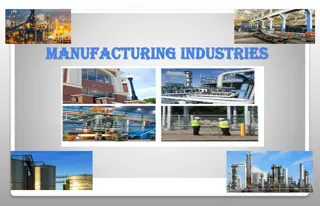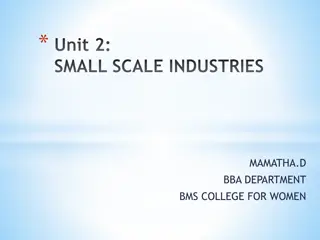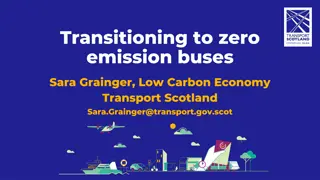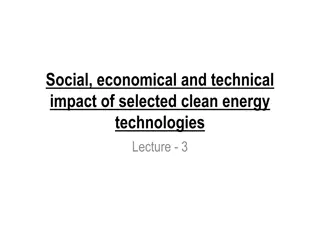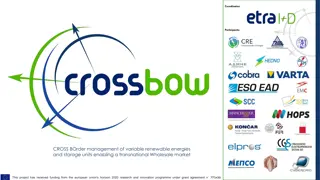Decarbonisation Technologies for Large Industries
Technologies for waste heat recovery and fuel-saving burners are explored in large industries to enhance energy efficiency and reduce carbon emissions. Case studies demonstrate significant savings in fuel consumption through innovative solutions like self-recuperative and regenerative burners.
Download Presentation

Please find below an Image/Link to download the presentation.
The content on the website is provided AS IS for your information and personal use only. It may not be sold, licensed, or shared on other websites without obtaining consent from the author.If you encounter any issues during the download, it is possible that the publisher has removed the file from their server.
You are allowed to download the files provided on this website for personal or commercial use, subject to the condition that they are used lawfully. All files are the property of their respective owners.
The content on the website is provided AS IS for your information and personal use only. It may not be sold, licensed, or shared on other websites without obtaining consent from the author.
E N D
Presentation Transcript
DECARBONISATION TECHNOLOGIES FOR LARGE INDUSTRIES A.K.ASTHANA
TYPES OF WASTE HEAT RECOVERY WHR High grade Medium grade Low grade
INNOVATIVE TECHNOLOGIES FOR WASTE HEAT RECOVERY
SELF RECUPERATIVE BURNER Temperature range upto 4500C to 5500C For fuel Gas only
REGENERATIVE BURNER Temperature range upto 9500C to 11000C For fuel Gas only
Natural Gas consumption 1500 m3/day Furnace temperature 12000C Flue gas temperature - 11500C Furnace operation per day 16hr/day BASE-LINE DATA Annual Furnace operation 300 days/yr Cost of natural gas Rs. 50/sm3 Annual fuel bills- Rs. 2.2 Cr
Combustion air temperature 3500C Ambient air temperature 300C Fuel saved 15% METALLIC RECUPERATOR Daily fuel saving 225 sm3/day 225 x 50 x 300 = Rs. 33.75 lakhs Annual fuel savings Investment 15 lakhs Payback period 5.5 months
Combustion air temperature 450-5500C Ambient air temperature 300C SELF RECUPERATIVE BURNER Fuel saved 25% Daily fuel saving 375 sm3/day 375 x 50 x 300 = 56.25 lakhs /year Annual fuel savings Investment 20 lakhs Payback period 4.5 months
Combustion air temperature 950-10000C Ambient air temperature 300C Fuel saved 35% REGENERATIVE BURNER Daily fuel saving 525 sm3/day 525 x 50 x 300 = 78 lakhs /year Annual fuel savings Investment 33 lakhs Payback period 5.5 months
Furnace capacity - 10Tons/day Furnace temperature - 12000C TECHNO- ECONOMICS FOR ENHANCING YIELD IN FORGING FURNACE Annual production - 3000Tons Average burning and scale losses - 3% Expected reduction in losses using preheat air - 1% Cost of forged steel in Rs. -100/kg Annual savings - 30 tons Annual monetary savings in Rs. 30 lacs
ENERGY SAVINGS POTENTIAL AT MANDIGOVINDGARH ROLLING MILLS CLUSTER - Total number of furnaces = 90 ( 20,15,10 tph) - Present best operated (S.E.C) = 35 Sm3/ton - Expected S.E.C after Regenerative burner technology = 25Sm3 - Total production = 5.287 Million tons/Yr. - Monetary savings = Rs. 260 Crores - Investment = Rs. 220 Crores - Simple pay back = 10 months - GHG emission reduction = 1.42 lakhs ton/Yr.
INNOVATION IN FABRIC PROCESSING FOR SUSTAINABILITY
STATE-OF-THE-ART PATENTED ULTRASONIC TECHNOLOGY Savings 30% water 60% Steam 30% Electricity 40% Space
WORKING PRINCIPLE Double threading Four layers of fabric Low quantity of water Optimum utilization of ultrasonic energy Minimum distance between the rollers
ADVANTAGES IN COMPARISON WITH CONVENTIONAL WASHING
